- Home
- Gordon Korman
Collision Course Page 2
Collision Course Read online
Page 2
His bleary eyes shifted from Sophie to the linens piled on the bed. “What on earth? Am I to assume that the chambermaid left those? Ring for the steward at once! When I travel first class, I expect it to be so.”
“Oh, Papa,” Juliana giggled. “It’s but the work of a moment to set it right.”
“You forget your position, young lady,” the earl said sternly. “You are not the chambermaid. You are the daughter of a peer, and you would do well to remember it.”
Juliana dropped her gaze. “Is there something I can do for you, Papa? You don’t normally leave the lounge so early.”
“I came to change my shirt. I spilled — tea all down the front. Walmsley will be here directly to assist me.”
The girls exchanged a worried glance. If Walmsley the valet didn’t get here soon, Paddy was going to suffocate in that drawer!
“You are no longer a child, Julie,” the earl went on. “Do you think I don’t notice how you fraternize with that Alfie boy?”
“He’s our steward!” Juliana protested, shocked.
“I’m delighted that you know it. You are a member of a family that stretches back for centuries. Your position is hardly enhanced by such an acquaintance.”
Stung, Juliana dared to strike back. “I’m impressed that you observe so much from a card table in the lounge.”
Sophie was amazed that tradition-bound Juliana would stand up to her father in this manner. At that, she was less surprised than the earl himself.
He was just about to rattle the walls with his outrage when Walmsley let himself in, bearing a selection of fresh shirts from the laundry. The valet and his master retired to the other bedchamber and shut the door behind them.
In a flash, the girls pulled open the drawer and helped Paddy out.
“Quickly,” Juliana whispered. “You need to leave before my father finishes dressing!”
Paddy looked at her, eyes wide. “Your father is a proper piece of goods, he is! He speaks to you like no loving parent.”
“How dare you!” Juliana demanded. “He is protecting my reputation, as is his responsibility.”
“Is that how you explain it to yourself?” he asked cynically. “Maybe I wasn’t born in your mansions, but even a poor boy has a nose. I can tell when something smells, I can.”
“What are you insinuating?” Juliana’s voice grew shrill.
“To your high-and-mighty father, a junior steward is something to be used, like a cane or a footstool. All that blather about your reputation — what I’m saying, miss, is there’s something not quite right about it.”
“You are speaking of the Earl of Glamford!” Juliana seethed. “You will show him the respect he is due.”
“I am,” Paddy said simply.
“Would you two stop bickering?” Sophie broke in. “What are we going to do with Paddy? We have to get him out of first class!”
“I can’t go back to steerage,” Paddy told them. “The crew is looking for me there.”
From the master suite, the earl’s voice could be heard. “A fresh cravat, Walmsley. Before I miss another round.”
“We’ll find Alfie,” Juliana decided. “He’ll know what to do.”
CHAPTER THREE
RMS TITANIC
FRIDAY, APRIL 12, 1912, 5:35 P.M.
Number 5 Boiler Room was so hot that Alfie half expected the wool of his steward’s jacket to burst into flames. He felt a wave of pity as he regarded his father, black with coal dust, glistening with sweat, plying his shovel. The stokers of the Titanic’s black gang lived and worked far below the waterline in a sunken realm of darkness and fire.
“Aye, boy,” John Huggins was telling his son. “Captain Smith gave the order this morning to light two more boilers.”
“I don’t know how you stand it, Da,” Alfie gasped, running a finger under his tight collar.
His father grinned. “I won’t lie to you. There are times when I go up on deck for a breather and I’m sore tempted to take a swim over the side, just to cool down. Then I remember how cold that ocean is, and I’m proper grateful to be hot again.”
“Why do they need more boilers?” Alfie questioned.
John Huggins shrugged. “If you want your horse to go faster, you give him a bigger pail of oats. If you want more speed, you pour on more coal. She’s making better than five hundred miles a day — well better, I’d wager. I’ve never worked a finer ship.”
Alfie looked nervous. “Five hundred miles a day! Is that even safe?”
His father laughed. “We’re in the middle of the Atlantic. The fish don’t care how fast we pass by. We’ve two more burners yet to light. I expect that order will come tomorrow sometime. There’s talk of making New York by Tuesday night, half a day ahead of schedule. Wouldn’t that be something?”
“I suppose,” Alfie agreed, bewildered. “But what’s the advantage of steaming into New York Harbor in the wee hours? The passengers will be asleep, and so will the city they’re landing in.”
“The newspapers, lad,” the fireman explained. “The maiden voyage of the greatest ship ever built! When the papers come out Wednesday morning, the name Titanic should be in every headline, in the largest type!”
“John!” came a bellow that cut through the clamor of the boiler room. A sailor appeared partway down the ladder from the upper decks. “Is your boy there with you?”
Alfie moved to the foot of the ladder. “I’m right here.”
“A passenger wants you.”
“I’m off duty,” Alfie protested.
The man laughed. “Well, get back on duty. Miss Glamm needs a hat from the baggage hold.”
Alfie was mystified. “Miss Glamm? What hat? She has more hats than I have hairs on my head.”
“Or you can ignore her and hear about it from Mr. Lightoller. It’s up to you.” And he was gone.
“Better go, lad,” his father called good-naturedly. “You know these first-class ladies and their frills and fancies.”
Alfie walked forward, ducking through the hatch that separated the boiler rooms from the fireman’s passage that led to the holds in the ship’s bow. At the touch of a single button on the bridge, a watertight door would come down and seal that opening. There were fifteen such doors dividing the hull of the Titanic into closed compartments. This was the feature that made her unsinkable. In the unlikely event that anything pierced the double steel hull, the flooding could be instantly and completely contained.
In the passage, the temperature dropped appreciably. That, at least, was a relief. But the prospect of spending the rest of his afternoon off running hatboxes up and down the spiral staircase to Juliana was not very appealing.
As a stoker’s son, Alfie had met very few wealthy people prior to this voyage. It was astonishing how a change of hat could be so important to the captains of government and industry who determined the fate of the world. Giants obsessed with nonsense.
Still, he was puzzled that Juliana would call him rather than the steward on duty. She was a fancy lady, yes, but usually considerate. She knew that Alfie valued his visits with his father now that Mum had abandoned them.
He stopped in his tracks, suddenly overcome by loneliness for his mother. He felt no anger toward her. He even understood a little why she might run away from her drab life. Mum was a dreamer, her nose forever buried in a penny novel. What else did he expect from a woman who had named her only son Alphonse after the hero in her favorite French romance? To be the wife of John Huggins — who was away at sea far longer than he was ever at home — must have been unbearable for her.
Stop feeling sorry for yourself! Alfie thought. There are many whose lot is far worse than your own.
After all, his scheme had worked perfectly. He had lied about his age and signed on with the White Star Line so he and Da could sail together. They were aboard the Titanic, the finest ship in the world. He was lucky.
He opened the hatch to the baggage hold and stepped inside, surveying the vast landscape of crates, trunks, an
d suitcases, all secured by netting. High society did not travel light. Some of the first-class staterooms had stashed as many as forty pieces of luggage.
At least he didn’t have to search for Juliana’s things. Alfie had spent a lot of time in the hold. He already knew where to find the Glamm baggage — closer to the spiral staircase, not far from the Astors’ vast collection of trunks and boxes.
He stiffened at the sound of a footfall close behind him. But when he wheeled around, there was no one there.
Frowning now, he faced up to Juliana’s hatboxes, stacked higher than he was tall. Now, which one of these could possibly be the one she wanted? And how was he to know, by the way?
A cat meowed somewhere behind the Astors’ luggage. Alfie knew there was at least one on board, kept in the stewardesses’ quarters. But when he looked behind the pile, there was no sign of the animal.
A deep unease gripped him. He had reason to believe that there was a criminal on board, a notorious murderer from long ago. Could this man be stalking him?
He felt hot breath on the back of his neck.
CHAPTER FOUR
RMS TITANIC
FRIDAY, APRIL 12, 1912 5:55 P.M.
Terrified, Alfie spun on his heel. The figure was so close that it took a moment for him to focus and recognize who was standing there.
“Paddy!” he wheezed.
The young stowaway was bent over double with laughter. “If only you could have seen the look upon your face!”
“You fool! I might have done you a serious injury!”
Paddy, who had survived a year on the streets of Belfast, was unperturbed. “How does your being frightened harm me?”
“Don’t be cute!” Alfie rasped. “I could have screamed my head off and brought half the crew down on us. What are you doing here, anyway? I thought we agreed you were going to hide in steerage.”
“I can’t stay there anymore,” Paddy replied. “Their stewards can count, same as in first and second class. One of them remembered how many sons Mrs. Rankin came aboard with. She wasn’t inclined to part with one of her own, you see. So here I am. A long story, it is, but Miss Fancy Pants sent me down to wait for you.” He flashed Alfie a cheeky grin. “You needn’t bother with the hatboxes.”
Alfie groaned. “What am I going to do with you, Paddy? You know you’re not safe in the hold.”
Paddy shrugged. “I’m not safe anywhere. This place is no worse and no better.” He locked earnest eyes on Alfie’s. “Don’t you worry. If I’m found, I’ll not tell them who helped me — neither you nor the girls.”
“You can’t let yourself get arrested! They’ll put you in the brig with those Gilhooley monsters!”
“Maybe not,” Paddy reasoned. “The captain knows they tried to murder me.”
“Do you think the White Star Line cares what happens to a stowaway? Mr. Lightoller will be more than happy to let those gangsters finish the job they started!”
“Then I won’t get caught,” Paddy said stubbornly. “If the officers get too close, I’ll just move on. I did it in Belfast. I can do it here.”
Alfie shook his head. “Not all day and all night. Everybody has to sleep. Even you.”
Paddy nodded reluctantly. “You have the right of it. So where does a desperate fugitive lay his head for a few hours to gather strength for the next chase?” He looked around, his bright gaze coming to rest on an enormous steamer trunk. “Would you take a gander at that! It’s easily the size of a small bedchamber.”
Alfie was horrified. “What are you thinking? That luggage belongs to John Jacob Astor!”
“The richest man in the world can well afford to lend me the use of it for a few days.” Paddy slithered under the netting and attacked the brass lock with the hairpin he’d used to gain access to suite B-56. It took about seven seconds before the lid was open and he was examining the contents.
The trunk was piled high with the most luxurious silks and satin brocades — fabrics purchased by the famous couple in Europe and Egypt to have made into clothing back in the United States.
“This’ll be a nice, soft bed,” Paddy decided. “Now for some air holes.”
“Paddy, there’s a difference between kipping in some wealthy man’s trunk and making holes in it!”
“Merely small ones,” Paddy promised. “By the hinges in the back, where they won’t be noticed.” He inserted the hairpin in the joints, working the narrow metal in a small circle to create some separation. “That should do it. Now I just have to remove some of this stuff so I fit.” He grabbed an armload of silky material.
“Be careful with that!” Alfie moaned. “It probably costs more than you and I will ever touch in our whole lives.”
“Would I deprive a millionaire of his fancy rags? I’m folding it beautifully, I am. And I’ll put it right into one of his other bags.”
He held up a large leather case. All at once, the piece fell open, broken, and out showered books, clothing, and a single torn leaf of heavy yellowed paper.
Scrapbook paper.
Alfie flattened himself to the floor and scrambled under the netting to join Paddy with the Astor luggage. The two stared at the ripped sheet and then at each other.
They had seen this paper before, and in this very baggage compartment. The scrapbook it had come from had been loose in the hold. Its pages chronicled grisly crimes from twenty-four years before — the Whitechapel murders. The killer, known only as Jack the Ripper, had never been caught or even identified.
The scrapbook held old newspaper broadsheets and notes that could only have been written by one person — Jack the Ripper himself. Worse, there were “souvenirs” from the victims — bloodstained fabric, earrings, even human teeth and skin.
Still pasted to the paper were a few links of an inexpensive bracelet above a handwritten notation:
Approached from the rear, struck swiftly.
The formation of the letters was a perfect match for the writing they had seen in the scrapbook.
“But —” Paddy was thunderstruck. “This is the Astors’ luggage!”
“I don’t think so,” Alfie told him, round-eyed. “Look — the Astor trunks all match, except for this one. What if the porters broke this bag and hid it to avoid getting into trouble?” He examined the luggage tag, which proclaimed that this leather bag belonged to the occupant of stateroom A-17.
“So you’re saying that the person in A-17 — that’s Jack the Ripper?” asked Paddy.
Alfie set his jaw grimly. “I’ve got to go back and take my passengers to dinner. But don’t worry. I’ll find him.”
CHAPTER FIVE
RMS TITANIC
FRIDAY, APRIL 12, 1912, 8:45 P.M.
The Titanic’s first-class dining saloon was the largest and most luxurious room aboard any ship anywhere. It sat more than five hundred people in glorious Jacobean splendor, ablaze in the electric light.
For the first time, table 22 had a full complement of diners, including Juliana’s father, the earl, and Sophie’s mother, Amelia Bronson, the noted suffragist.
Major Mountjoy was there, too. Thanks to the talents of the ship’s surgeon, he was no longer bent at a right angle, but at a more relaxed 135 degrees. He sat there like an oriental potentate, propped up by many pillows. And as usual, he provided most of the conversation.
“My word! I am bowed down with grief that I was unable to complete my instructions to the two young ladies.”
The earl raised melancholy bloodshot eyes from the contemplation of his hand, where there were, alas, no cards. “What are you talking about? What instructions?”
“Papa,” Juliana explained patiently, “the major was kind enough to be showing us the fine points of ringtoss when he injured his back.”
Amelia Bronson spoke up in the sharp, no-nonsense voice that was natural to her. “Tell me, Major: Is it because you happen to be a man that you are instantly qualified to dispense lessons on a pointless skill that could be learned by any half-intelligent baboon?”
<
br /> “Mother —” Sophie began warningly. Her mother’s speechmaking and activism often landed her under arrest and even in jail. These were the moments that Sophie dreaded the most. The dining saloon was such a beautiful, festive place. Why couldn’t Mother simply enjoy the magnificent meal instead of scoring points for women’s rights? Major Muttonchop may have been as tiresome as he was rotund, but he was a nice man who didn’t deserve to be skewered by a woman with a tongue like a razor-sharp sword.
More embarrassing still was Amelia Bronson’s choice of clothing. She wore exclusively purple, white, and green, the colors of the suffragist movement. Here they were, among the wealthiest, most celebrated people alive, and Mother looked like she was draped in the flag of some exotic banana republic.
Luckily, Major Mountjoy was not offended by his tablemate’s harsh words. “Well met, Mrs. Bronson. Very well met, indeed. I happen to be a staunch supporter of votes for women. It would definitely pretty up those polling stations. Such drab, dreary places.”
Amelia Bronson said nothing, but her eyes burned. Being considered merely decorative was almost as bad as being denied the vote.
Anxious for a change of subject, Sophie glanced expectantly at a passing waiter. The elegance and beauty of the room was exceeded only by the sheer volume of fine food served there. Dinner in first class stretched for twelve or thirteen courses and always ended with a dessert from Henri Jaillet, the renowned pastry chef. (Last night it had been chocolate mousse napoleons, each piece a work of art.) The diners were the pampered of the world, used to the very best of everything. And they got it here.
When the lights dimmed in the saloon, excitement buzzed in the vast room. Never mind that every single diner was already full to bursting. The anticipation of the next marvelous dessert was all that was required to give them an appetite.
An army of waiters marched in from the kitchen, bearing huge platters of cherries jubilee flambé. There were oohs and aahs, and even a sprinkling of applause. The flaming brandy cast a bluish glow on the white walls and the gentlemen’s gleaming starched shirtfronts.

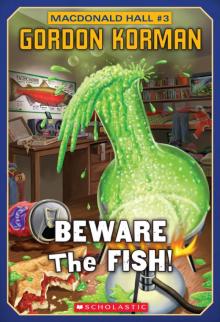 Beware the Fisj
Beware the Fisj Slacker
Slacker The Medusa Plot
The Medusa Plot This Can't Be Happening at MacDonald Hall!
This Can't Be Happening at MacDonald Hall!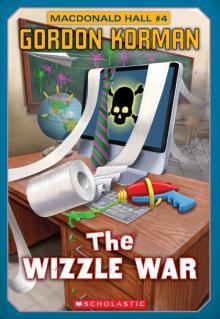 The War With Mr. Wizzle
The War With Mr. Wizzle The Emperor's Code
The Emperor's Code Zoobreak
Zoobreak The Danger
The Danger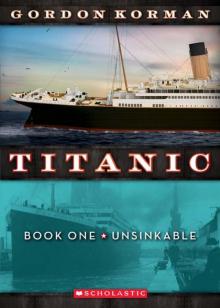 Unsinkable
Unsinkable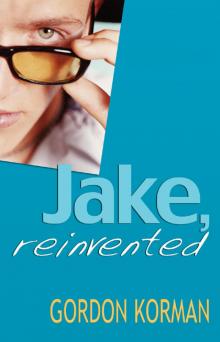 Jake, Reinvented
Jake, Reinvented No More Dead Dogs
No More Dead Dogs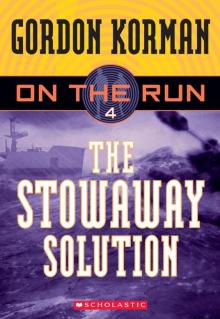 The Stowaway Solution
The Stowaway Solution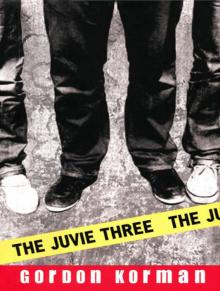 The Juvie Three
The Juvie Three The Climb
The Climb Criminal Destiny
Criminal Destiny Hideout: The First Adventure
Hideout: The First Adventure Flashpoint
Flashpoint Swindle
Swindle Pop
Pop The Rescue
The Rescue Memory Maze
Memory Maze The Sixth Grade Nickname Game
The Sixth Grade Nickname Game Vespers Rising
Vespers Rising Collision Course
Collision Course The Abduction
The Abduction Losing Joe's Place
Losing Joe's Place The Dragonfly Effect
The Dragonfly Effect The Hypnotists
The Hypnotists Survival
Survival Lights, Camera, DISASTER!
Lights, Camera, DISASTER! Payback
Payback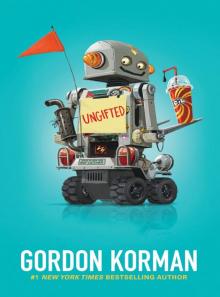 Ungifted
Ungifted Unplugged
Unplugged Framed
Framed Supergifted
Supergifted Masterminds
Masterminds Jackpot
Jackpot Don't Care High
Don't Care High The Deep
The Deep Go Jump in the Pool!
Go Jump in the Pool! The Contest
The Contest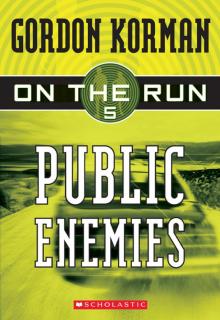 Public Enemies
Public Enemies Hideout: The Second Adventure
Hideout: The Second Adventure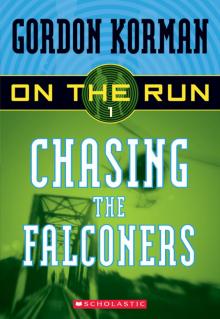 Chasing the Falconers
Chasing the Falconers One False Note
One False Note Shipwreck
Shipwreck Jingle
Jingle Unleashed
Unleashed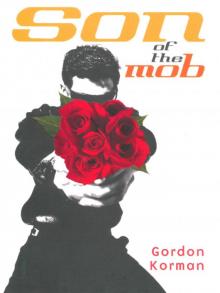 Son of the Mob
Son of the Mob Now You See Them, Now You Don't
Now You See Them, Now You Don't War Stories
War Stories Schooled
Schooled Hunting the Hunter
Hunting the Hunter The Zucchini Warriors
The Zucchini Warriors A Semester in the Life of a Garbage Bag
A Semester in the Life of a Garbage Bag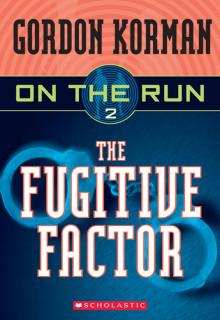 The Fugitive Factor
The Fugitive Factor Born to Rock
Born to Rock The Summit
The Summit Showoff
Showoff The Unteachables
The Unteachables The Third Adventure
The Third Adventure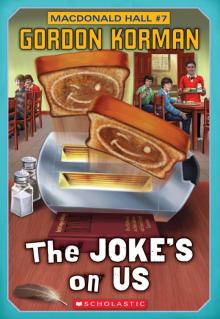 The Joke's on Us
The Joke's on Us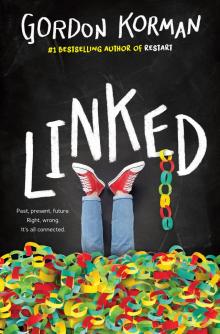 Linked
Linked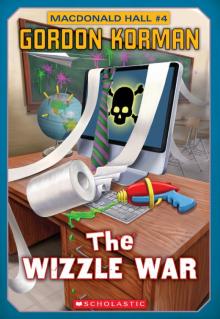 The Wizzle War
The Wizzle War The 6th Grade Nickname Game
The 6th Grade Nickname Game The Second Adventure
The Second Adventure The First Adventure
The First Adventure![39 Clues : Cahills vs. Vespers [01] The Medusa Plot Read online](http://i1.bookreadfree.com/i2/04/10/39_clues_cahills_vs_vespers_01_the_medusa_plot_preview.jpg) 39 Clues : Cahills vs. Vespers [01] The Medusa Plot
39 Clues : Cahills vs. Vespers [01] The Medusa Plot